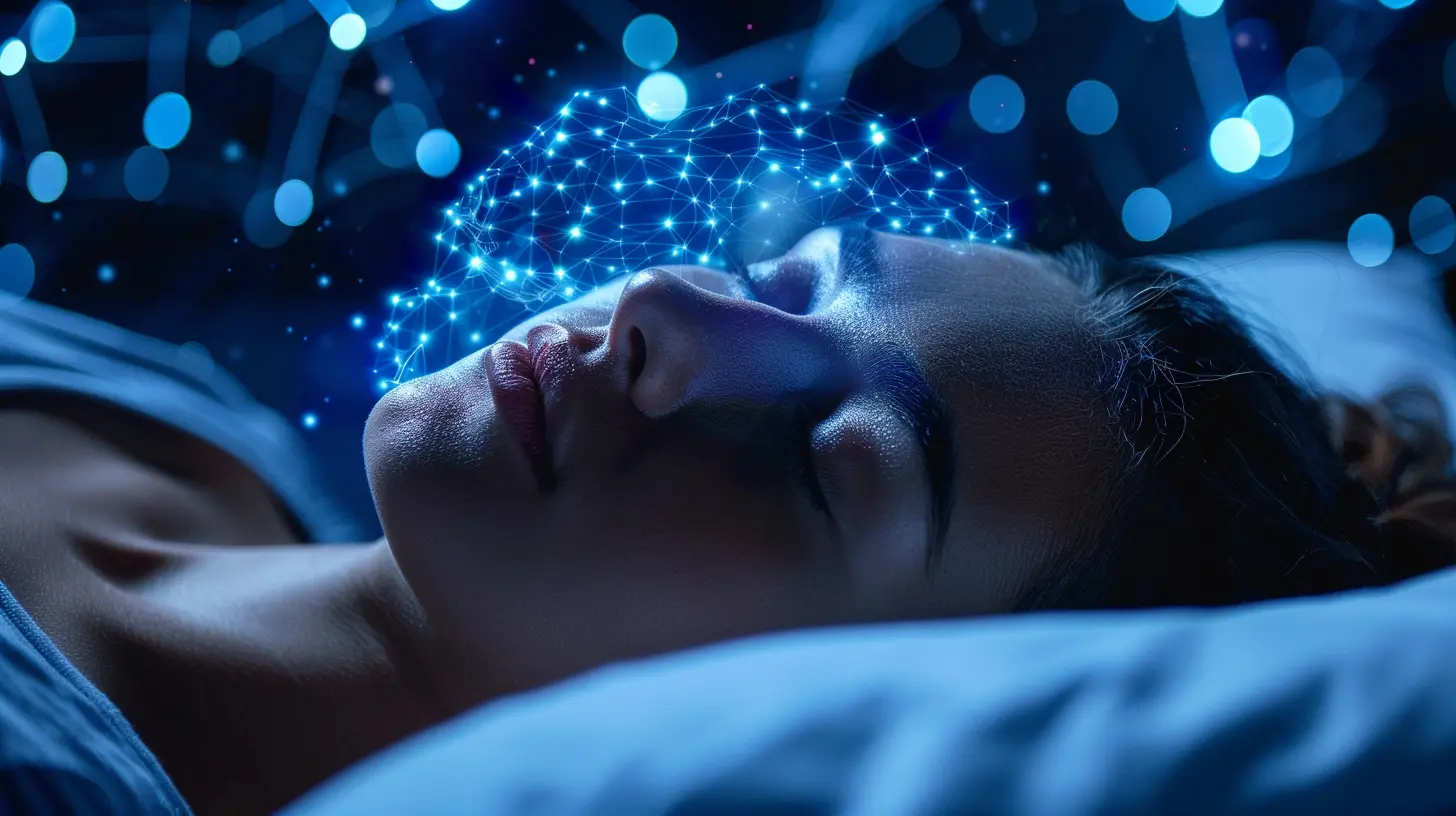How Sleep Affects Cognitive Function: What the Research Says
20 September 2025
Let’s get straight to the point — sleep is not just "nice to have." It's essential for keeping your brain firing on all cylinders. If you’ve ever tried to power through a day after pulling an all-nighter or surviving on just a few hours of shut-eye, you already feel what science has been screaming for decades: poor sleep wrecks your mental sharpness.
But what exactly is going on up there in that brain of yours when you skimp on sleep? Why does forgetting your car keys or zoning out during a meeting feel like second nature when you're running on fumes?
Let’s peel back the layers and break it all down — in plain English — and backed by real research.
First Things First: What Is Cognitive Function Anyway?
Before we dive headfirst into the science of slumber, let’s clarify what we’re talking about when we say “cognitive function.”In simple terms, cognitive functions are the mental actions or processes your brain uses to take in information and make sense of the world. We're talking about:
- Memory (short- and long-term)
- Attention and concentration
- Problem-solving
- Decision-making
- Learning
- Emotional regulation
- Creativity and critical thinking
These aren’t just fancy buzzwords. They're daily essentials. Without sharp cognitive abilities, even the most basic tasks can feel like climbing Everest blindfolded.
The Science Doesn’t Lie: Sleep Supercharges Your Brain
Here’s the cold, hard truth: Poor sleep = poor thinking.Study after study confirms that sleep plays a critical role in cognitive performance. When you sleep, your brain isn’t just “resting.” It's actually working overtime to consolidate memories, regulate emotions, and clean up neurological clutter.
Let’s put it into context: Imagine your brain as a computer. Sleep is like running a system upgrade and clearing the cache. Without it, you're stuck trying to load high-res files on a machine from 2005.
Memory Consolidation Happens While You Sleep
This one's big. You can study for hours, but if you skimp on sleep, your brain might not store that information effectively. Research shows that slow-wave sleep (that deep, non-REM sleep) is crucial for consolidating declarative memory — facts, concepts, things you learn during the day.REM sleep, on the other hand, helps with emotional memory and procedural memory (like learning how to drive or play an instrument).
So if you're cramming for an exam or learning a new skill, pulling an all-nighter is like pouring water through a sieve — pointless.
Attention, Please! Sleep Sharpens Your Focus
Missing out on sleep is like trying to read a book in a dark room — your brain just can’t focus. Sleep deprivation crashes your attention span, short-term memory, and even your reaction time.Let’s break it down:
- After just one bad night of sleep, your reaction time slows down.
- Continuous lack of sleep? Your ability to focus and process new information tanks.
- Chronic sleep deprivation? We’re talking long-term damage — even mimicking symptoms of ADHD.
You know that “foggy brain” feeling? That's not just in your head. It's literally your prefrontal cortex — the part responsible for attention, planning, and reasoning — operating on low battery.
Decision-Making and Problem-Solving Take a Major Hit
Ever notice how your judgment gets wonky when you're tired? You stress over small things, overreact to normal situations, or make choices you later regret. Lack of sleep messes with your ability to evaluate risks and consequences.Several studies suggest sleep-deprived individuals are more likely to:
- Make impulsive decisions
- Struggle with evaluating outcomes
- Show poor emotional regulation
Translation? You’re more likely to eat that extra slice of cake, send that risky text, or skip the gym — even when you know you shouldn’t.
Emotional Regulation: Sleep Keeps You Sane
Sleep doesn’t just help you think straight — it helps you feel balanced. Your amygdala, the brain’s fear center, goes into overdrive when you’re sleep-deprived. That leads to increased anxiety, irritability, and even depressive thoughts.On top of that, your ability to read facial expressions and social cues goes down the drain. That means sleep-deprived you is not just moody — you're also more likely to misread other people and react poorly.
Think of it this way: Sleep is like your emotional armor. Without it, even the smallest annoyance feels like an emotional gut-punch.
Creativity Needs Sleep Like Plants Need Sunlight
Ever get your best ideas right after waking up from a good nap or a full night’s rest? That's no coincidence. REM sleep is a powerhouse for creativity and abstract thinking. It’s during this stage that the brain makes new connections between unrelated ideas — literally creating "aha!" moments.Sleep actually boosts divergent thinking — the ability to generate new ideas and think outside the box. That’s why many artists, writers, and problem-solvers swear by getting plenty of rest. Your dreams are working overtime even when you're not.
Neuroplasticity and Brain Health Depend on Sleep
Let’s throw in a fancy term — neuroplasticity. It’s basically your brain’s ability to adapt and rewire itself. Sleep is essential for this process. Without it, your brain’s ability to grow and change is severely stunted.And it doesn’t stop there.
Sleep deprivation has been linked to:
- Increased buildup of beta-amyloid proteins (associated with Alzheimer’s disease)
- Loss of brain volume in critical areas
- Impaired synaptic pruning (the brain’s process of cleaning up unnecessary neural connections)
So it’s not just about how you feel the next day. Chronic sleep loss could literally change the structure and function of your brain over time. Scary, right?
How Much Sleep Do You Really Need?
Okay, so we know sleep is vital. But how much of it is enough?Here’s a general breakdown recommended by sleep experts:
- Teens (14–17 years): 8–10 hours per night
- Young adults (18–25 years): 7–9 hours
- Adults (26–64 years): 7–9 hours
- Older adults (65+): 7–8 hours
But let’s be real — quality matters just as much as quantity. Five hours of crappy, interrupted sleep doesn’t cut it. Your goal should be consistent, restful sleep that includes all the sleep stages — especially deep and REM sleep.
Tips To Boost Sleep and Brain Function
Don't just nod along to all this info. Apply it. Here are a few science-backed tips to help you snooze smarter and think clearer:1. Create a Sleep Sanctuary
Get rid of distractions. That means no phones, TVs, or laptops in bed. Your bedroom should scream “relaxation,” not “doomscrolling.”2. Stick to a Schedule
Going to bed and waking up at the same time every day helps regulate your internal clock. Yes, even on weekends.3. Limit Caffeine and Alcohol
Caffeine can mess with your sleep even if you drank it six hours ago. And alcohol might make you sleepy, but it actually disrupts deep sleep later in the night.4. Get Moving
Regular exercise (especially in the morning or early afternoon) can help you fall asleep faster and improve sleep quality. Just don’t go full beast-mode right before bed.5. Power Down Before Bed
Give your brain a break before hitting the pillow. Read a book, meditate, or take a warm bath. The calmer your mind, the better your sleep.What Happens When You Sleep Well? You Level Up.
Now here’s the flip side. When you actually get good sleep?- Your memories lock in better.
- You make smarter decisions.
- Your emotions stabilize.
- Creativity flows.
- You process information faster.
- You become a better problem-solver.
Pretty much every mental skill you care about gets a boost. It’s like taking a multivitamin — but for your mind.
Final Thoughts: Respect Your Sleep Like Your Sanity Depends On It (Because It Does)
Listen, we’ve all pulled all-nighters, stayed up binge-watching Netflix, or burned the midnight oil chasing deadlines. But chronically cutting corners on sleep is like running a marathon on an empty stomach. Sure, you might finish the race, but you’ll feel like death at the end.Your brain is powerful — but it’s not invincible. If you want to remember more, think faster, problem-solve better, stay calm under pressure, and simply feel human — sleep is your secret weapon.
So tonight? Power down. Get cozy. And gift your brain the rest it desperately deserves. Trust me, it’ll thank you in the morning.
all images in this post were generated using AI tools
Category:
Cognitive ScienceAuthor:

Janet Conrad
Discussion
rate this article
1 comments
Ingrid McElhinney
Who knew that counting sheep was more than just a bedtime distraction? Turns out, your brain functions better after a good night's sleep—no wonder my genius ideas always strike at 3 AM! Here’s to naps: the unsung heroes of cognitive brilliance!
October 3, 2025 at 4:49 AM

Janet Conrad
Thank you for your insightful comment! It’s fascinating how sleep enhances cognitive function and creativity. Here’s to embracing those naps for our best ideas!


